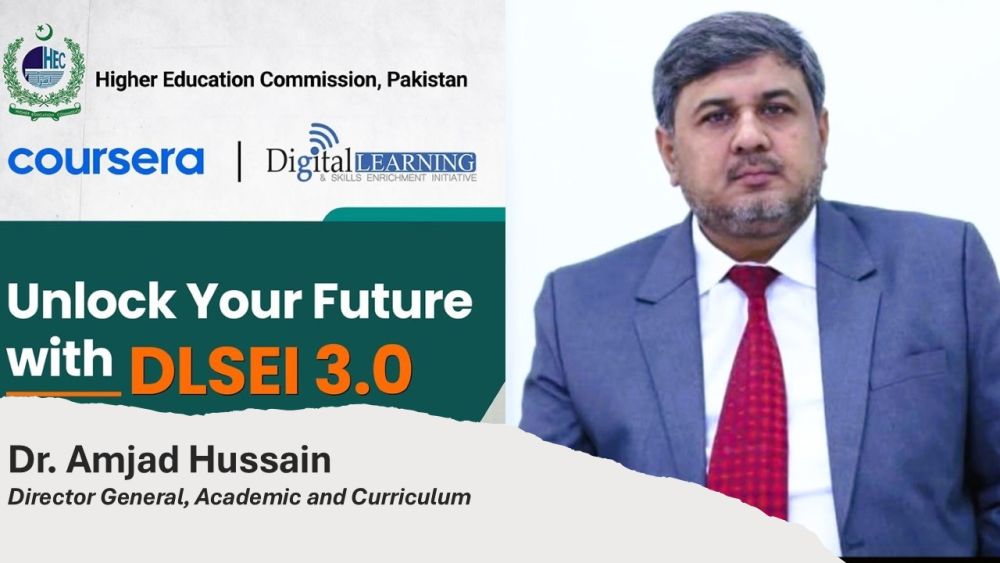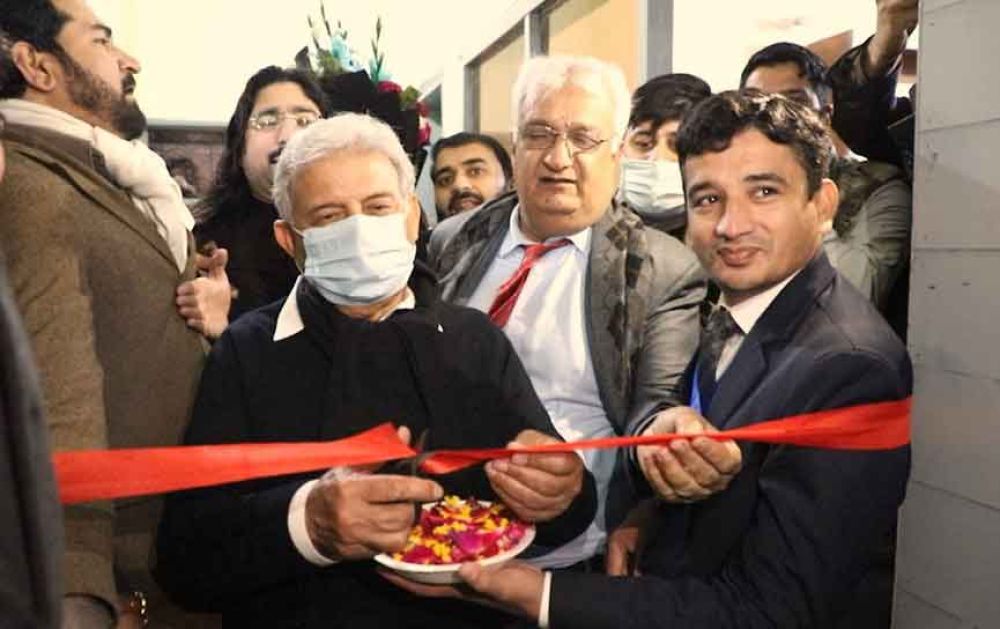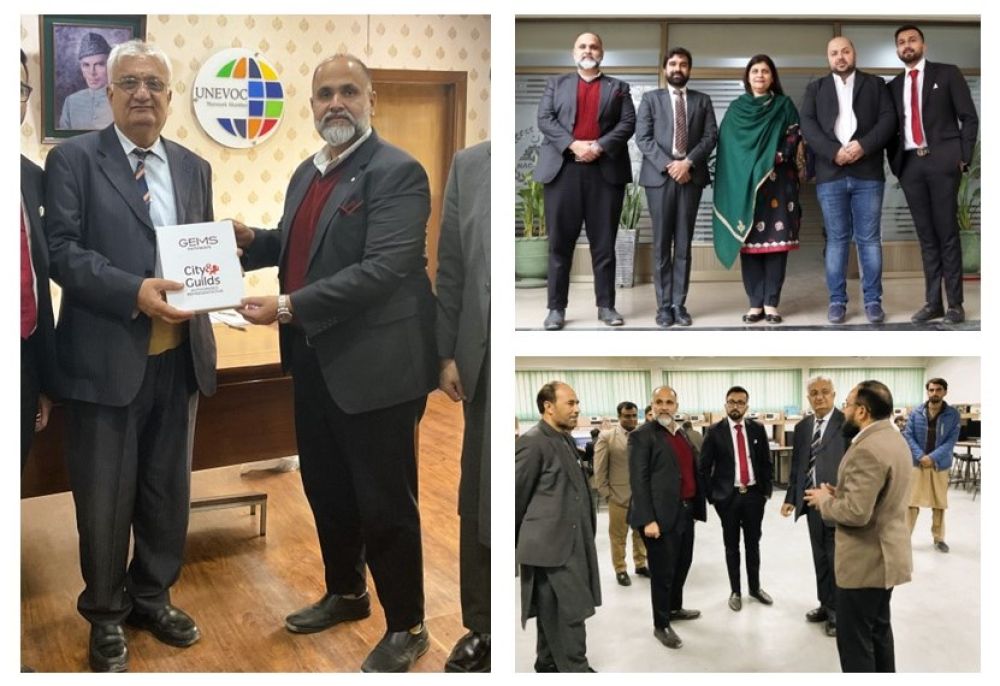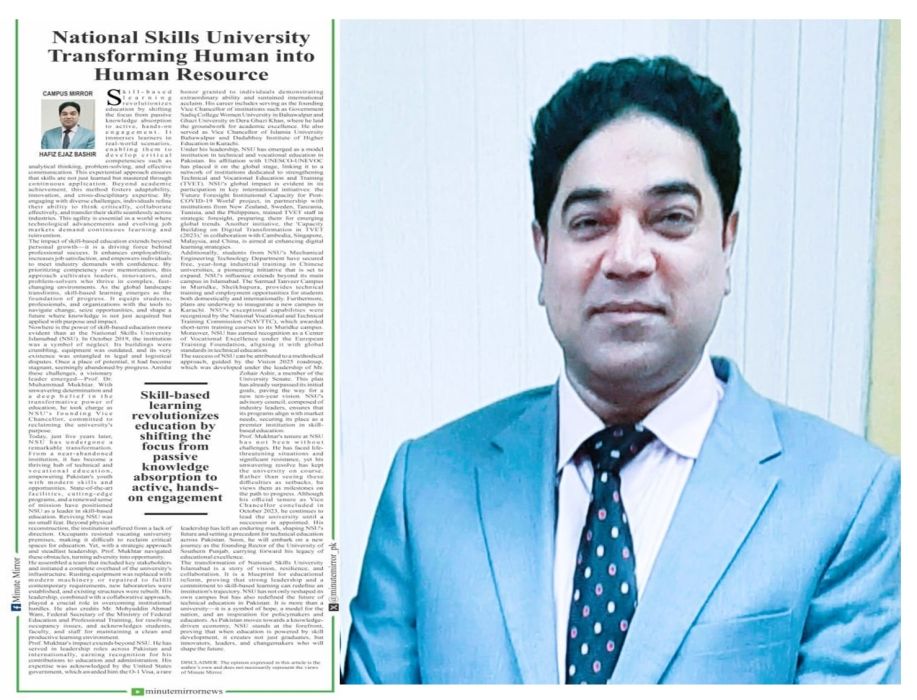Empowering the Future by Reviewing Existing Curricula to Integrate Skills and Technology
Posted 1 year ago
The National Curriculum Council (NCC) joins hands with the Inter Board Coordination Commission (IBCC) in organizing a National Curriculum Summit 2024 on the theme "Empowering the Future by Reviewing Existing Curricula to Integrate Skills and Technology." This conference will be held in the Islamabad main campus of the Allama Iqbal Open University from November 26 to 27, 2024.
As the Secretary of the Federal Ministry of Education and Professional Training emphasizes, the rapidly evolving job market necessitates an urgent review and overhaul of our existing curricula. This is crucial to ensure that our graduates are equipped with the skills and knowledge that will make them competitive in the current job market.
In describing the need for this conference, Prof. Dr. Ghulam Ali Mallah says the traditional education model, characterized by rote learning and theoretical knowledge, needs to prepare students for real-world challenges. Employers increasingly seek graduates with critical thinking, problem-solving, communication, and technological literacy skills. In Pakistan, as in many parts of the world, bridging the gap between academic knowledge and industry demands necessitates a paradigm shift in how we design and deliver education.
A well-rounded curriculum should focus on foundational knowledge, skill development, and adaptability to technological advancements. By embedding these elements into educational frameworks, institutions can foster graduates who are employable and capable of driving innovation and societal progress.
Prof. Dr. Muhammad Mukhtar, Vice Chancellor of the National Skills University Islamabad, believes that Skill-based education emphasizes practical knowledge and application. For this, moving beyond textbook-centric teaching and embracing experiential learning methods is vital. Collaborative projects, internships, and community-based activities should be mandatory components of educational programs. For example, introducing students to skills like coding, data analytics, robotics, and design thinking early will enable them to explore diverse career opportunities.
Educational institutions must also nurture soft skills such as teamwork, leadership, and ethical reasoning. These skills are indispensable in creating well-rounded individuals who can navigate the complexities of a globalized world. Aligning curriculum objectives with the United Nations Sustainable Development Goals (SDGs) can also instill a sense of responsibility among students to address pressing global challenges.
Dr. Shafqat Ali Janjua, Joint Educational Advisor, expresses a strong belief in the transformative power of technology in the Pakistani educational landscape. He is optimistic that technology, as a powerful enabler, can revolutionize teaching and learning processes. Digital tools such as learning management systems (LMS), artificial intelligence (AI), and augmented reality (AR) can provide interactive and personalized learning experiences, even in under-resourced areas.
While technology integration holds great promise for the future of education, it is crucial that this process is equitable. In a country like Pakistan, where digital disparities persist, it is essential to ensure that technology is accessible to all. Initiatives such as low-cost digital devices, free internet zones, and localized educational content can bridge the digital divide. Moreover, it is critical to train educators to effectively use technology for its successful implementation.
Despite the apparent benefits, integrating skills and technology into curricula is challenging. Resistance to change, resource limitations, and outdated policies can hinder progress. Institutions must adopt a collaborative approach involving policymakers, educators, industry leaders, and community stakeholders. Regular needs assessments and feedback sessions can help identify gaps and ensure the curriculum remains relevant.
Aligning with the theme, the salient objectives of the Summit are:
- Review the existing curriculum, particularly core subjects, to align with emerging needs and requirements.
- Exploring global best practices to enhance educational outcomes and meet students'students' contemporary needs and requirements.
- Developing actionable IT integration strategies within all curriculum components like Artificial Intelligence, IoT, blockchain, environmental literacy, entrepreneurship, financial literacy, etc.
- Enhancing teacher capacity in utilizing IT-based learning tools and the latest teaching strategies by promoting innovative digital methods.
- Integrating skills and technical subjects across levels of education.
- Building public-private collaboration for sustainable resources and infrastructure.
- Introducing non-credit curricula.
- Employing contemporary approaches such as cooperative learning, storytelling, gamification, project-based, and experiential learning, especially for Early Childhood Education and Development (ECED).
This transformative approach will equip Pakistani students with the tools to excel in a technology-driven world while fostering innovation, creativity, and resilience. Educators, institutions, and governments must champion this change to ensure that education catalyzes personal and societal development.





